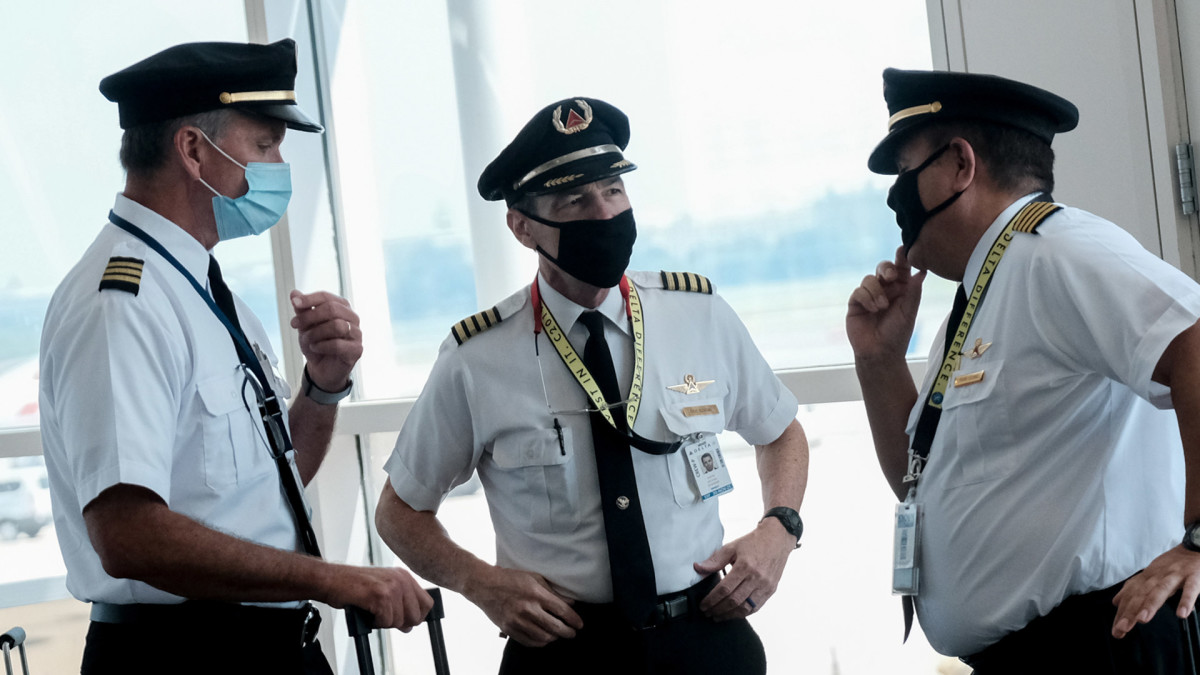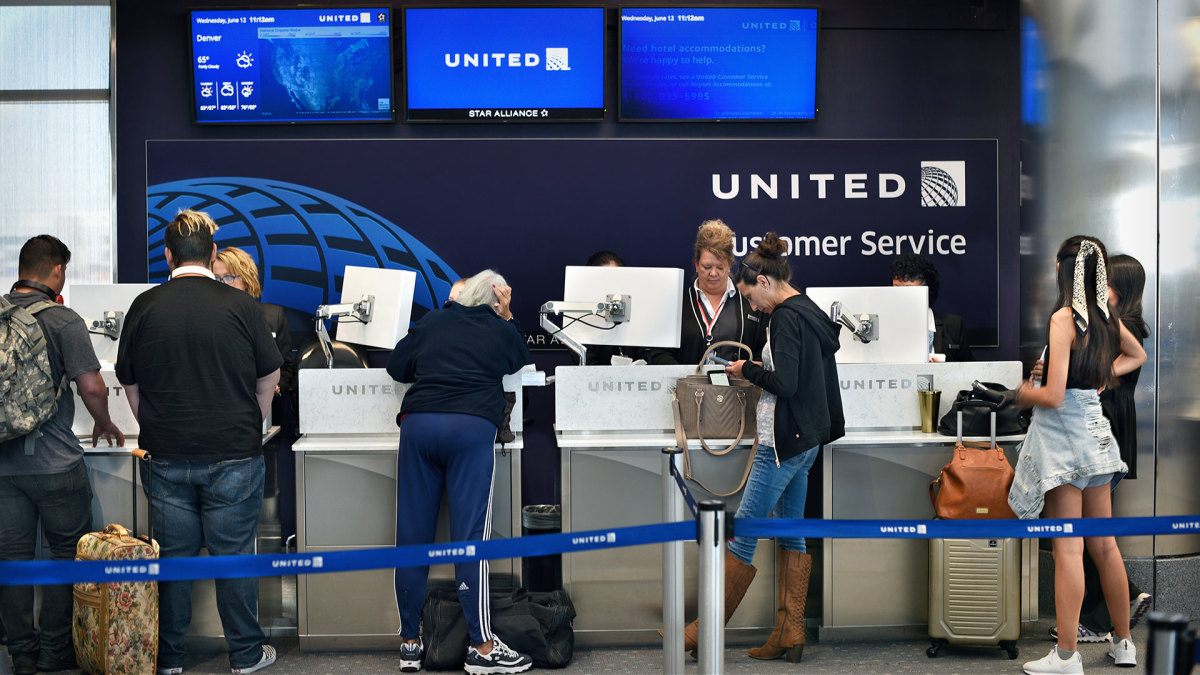
While the aviation industry is struggling to find the staff for every point of the airport and flying experience, pilots are in particularly short supply. Even for those who feel the calling of the sky, setbacks include the more than $100,000 in training costs it takes to become one and mandatory retirement age of 65 relative to an average salary of $134,000.
As a result, North American airlines are currently at least 12,000 pilots short while even the U.S. Air Force currently has 1,500 pilots fewer than it would like.
Related: Ongoing Pilot Shortage is Hitting United Airlines Where It Hurts
United Airlines (UAL) -), in particular, has felt the dearth of trained pilots quite acutely. In a March 2023 filing with the Securities and Exchange Commission, the airline named a lack of qualified pilots as one of the reasons for expecting a loss in the first quarter of 2023. In April 2023, it reported a loss of 63 cents per share.

Image source: Robert Alexander/Getty Images
'Launching this program is a win-win,' United CEO says
"We believe the industry capacity aspirations for 2023 and beyond are simply unachievable," United CEO Scott Kirby said of wider staffing goals during an earlier earnings call. "That means the system simply can't handle the volume today, much less the anticipated growth. Like it or not, that’s just the new reality and the new math for all airlines."
More Travel:
- A new travel term is taking over the internet (and reaching airlines and hotels)
- The 10 best airline stocks to buy now
- Airlines see a new kind of traveler at the front of the plane
In a small step to improve the situation with pilots, the airline launched a program in which it will give conditional job offers to active-duty U.S. military pilots. Getting trained as a military pilot does not give one the Airline Transport Pilot Certificate (ATP) certification necessary to work as a commercial pilot and, through the program, those interested in working for United will be able to apply and be offered for a job first and get the certification later — a step that can significantly speed up the military-to-commercial pathway and allow pilots to have the security of a job offer before formally leaving the military.
"At United we are committed to investing in individuals who have served and are serving our country – whose military skills and background are invaluable to our airline," Kirby said in a statement on the program. "Launching this program is a win-win: our airline gets direct access to some of the best, most talented aviators in the world, and military pilots – and their families – get the time they need to plan their civilian career while still serving."
This is what's going on with United pilots (and lack of them) these days
United said that it currently employs over 16,000 pilots while 3,000 of those either served or have previously served in the U.S. military.
At the same time, United has spent the last several months actively negotiating labor conditions with its existing pilots. On Sept. 29, the airline and the union representing its pilots cemented a $10.2 billion contract that raises compensation by over 40% over the next four years.
Some of the improvements pushed forth by the union included compensation that keeps up with inflation and better work-life balance.
Similar 40% pay raises were also recently negotiated by Delta Air Lines (DAL) -) and American Airlines (AAL) -).







